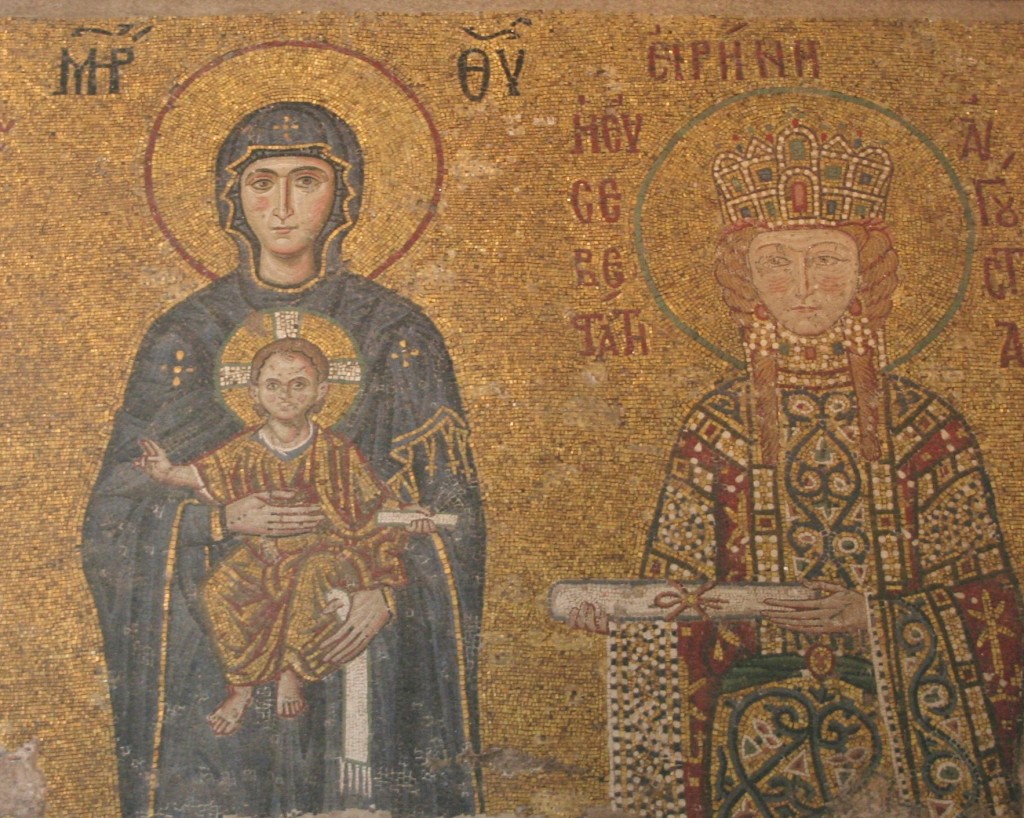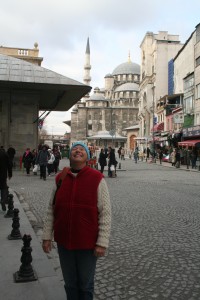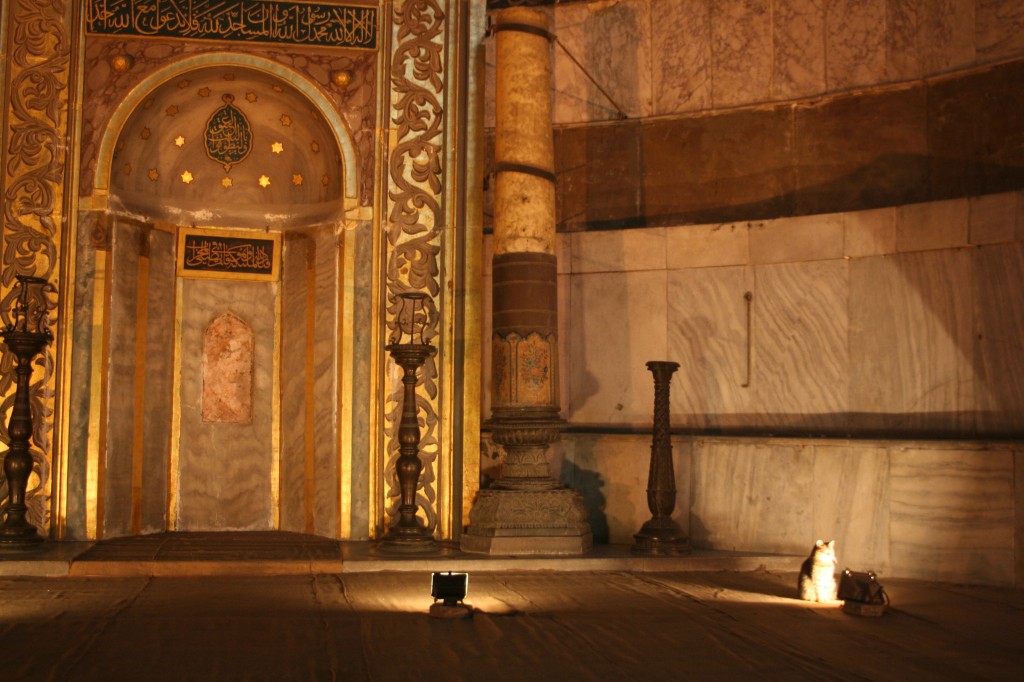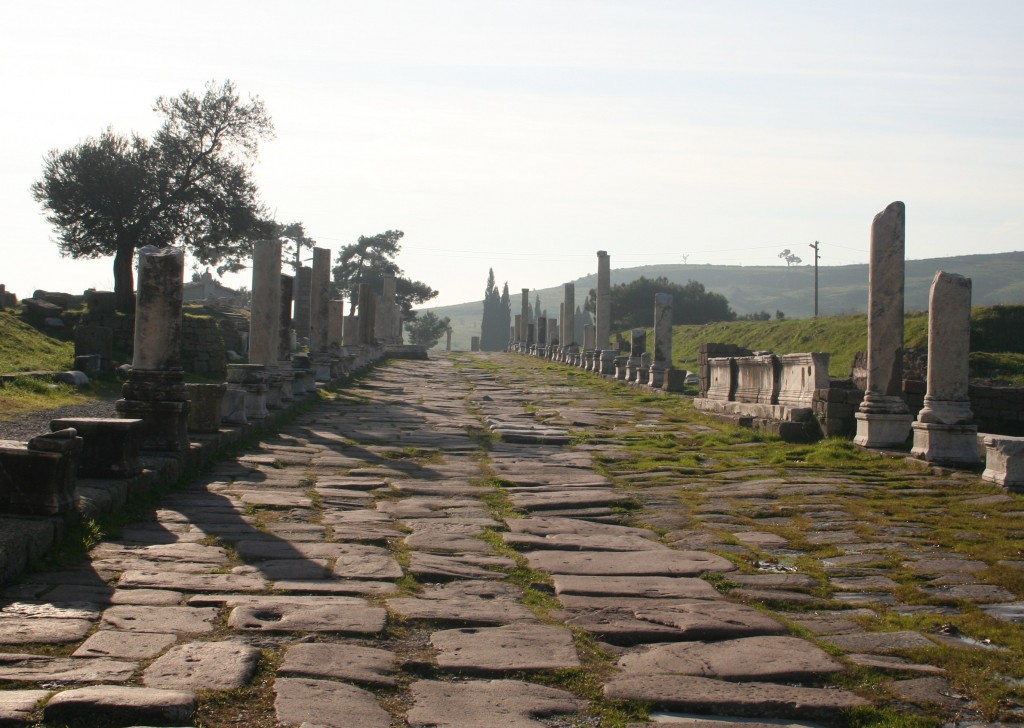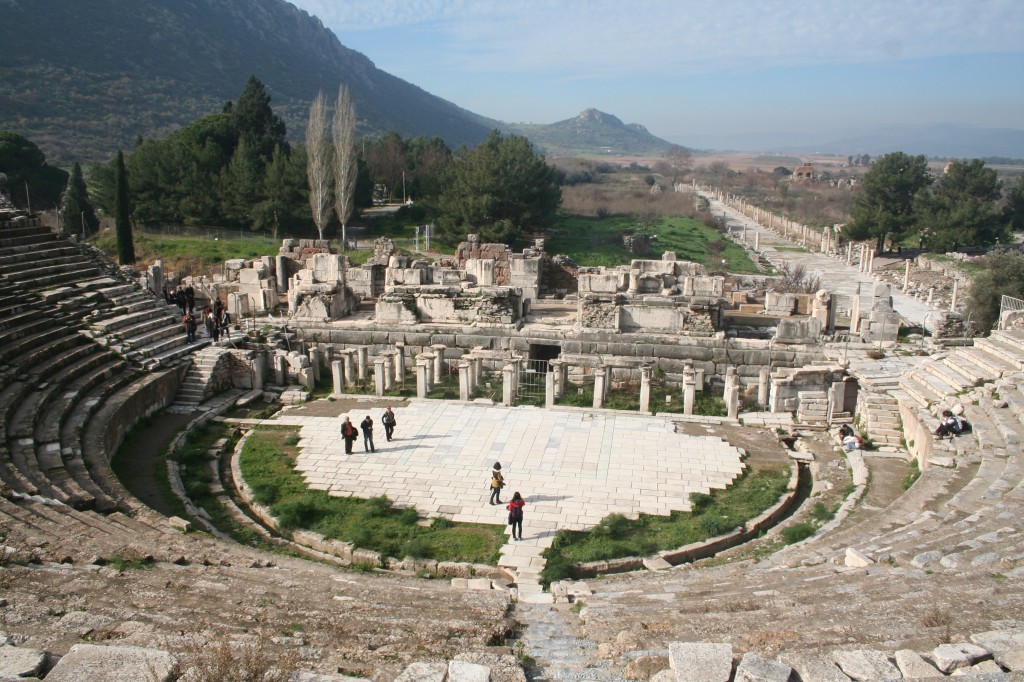
While the list of former residents of Ephesus reads like a Who’s Who of the ancient world, there’s one name that stands above them all: the Apostle Paul, who made the city his base for more than two years while traveling in Asia Minor on missionary work.
When Paul came to this cosmopolitan city around the year 53, it was already home to a small Christian community. It was in Ephesus that Paul wrote his First Letter to the Corinthians, one of the best-loved of all the books of the Bible. While in Ephesus Paul tended to new converts and tried tirelessly to make more. Most in the city likely saw him as just another itinerant crank peddling his version of yet another deity.
In time, however, Paul’s passionate preaching began to make waves in Ephesus, particularly among the artisans who crafted miniature versions of Artemis and her temple for sale to pilgrims and tourists. When the silversmith Demetrius heard there was a man in the city saying that gods made by humans were not gods at all and should not be worshipped, he realized that his livelihood was at stake. Demetrius and his fellow artisans marched to the amphitheater shouting, “Great is Artemis of Ephesus!” They found some of Paul’s followers and hustled them along with them, creating a scene that threatened to turn violent. City officials intervened and Paul was forced to leave Ephesus.
Walking the streets of this ruined city today, one knows that Paul also once walked these same stones. Irascible and indefatigable, both then and now, Paul still stirs passions and changes hearts.
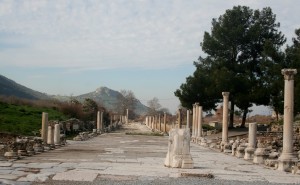
One can imagine him walking on the harbor road at left, struggling to form the words he will write to the community of Christians at Corinth. Returning to his modest home at the end of a long and tiring day, he picks up his pen and creates this passage, words that still vibrate with power long after the mighty Temple of Artemis has crumbled to dust and Ephesus itself has sunk into slumber:
If I speak in the tongues of men or of angels, but do not have love, I am only a resounding gong or a clanging cymbal. If I have the gift of prophecy and can fathom all mysteries and all knowledge, and if I have a faith that can move mountains, but do not have love, I am nothing. If I give all I possess to the poor and give over my body to hardship that I may boast, but do not have love, I gain nothing…
Love never fails. But where there are prophecies, they will cease; where there are tongues, they will be stilled; where there is knowledge, it will pass away. For we know in part and we prophesy in part, but when completeness comes, what is in part disappears. When I was a child, I talked like a child, I thought like a child, I reasoned like a child. When I became a man, I put the ways of childhood behind me. For now we see only a reflection as in a mirror; then we shall see face to face. Now I know in part; then I shall know fully, even as I am fully known.
And now these three remain: faith, hope and love. But the greatest of these is love.


